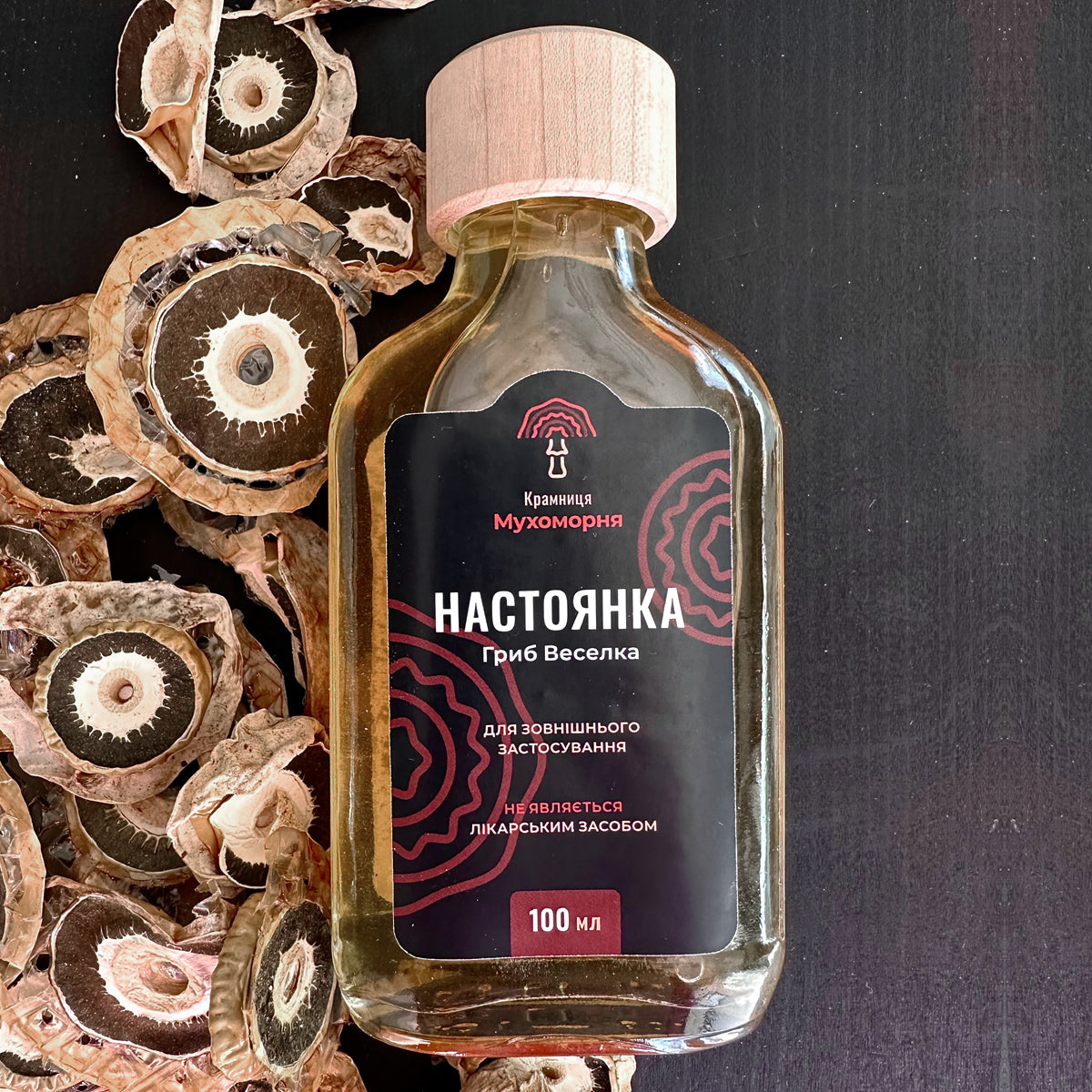The Russian-Ukrainian war has been going on for more than 10 years. And if the first part, which changed several "names" - hybrid war, ATO, OOS - was "somewhere there" for many, then the large-scale invasion changed the lives of all Ukrainians once and for all. Loss of loved ones, destroyed houses, occupation, emigration - these are just a few of the horrors that touched us. After all, a person adapts even to negative factors, otherwise our mental health would not be able to withstand constant stress. But is it really possible to get used to this? Unfortunately, the injuries received can return in the form of a terrible and unpleasant abbreviation - PTSD.
What is PTSD?
Post-traumatic stress disorder is a pathological condition that is a consequence of an experienced psycho-emotional shock. Such a violation can occur at any age. After a shock, a person associates the experienced events with the emotions that arose in him during stressful circumstances. Sometimes it is possible to get rid of memories and thoughts on your own, which leads to an improvement in well-being and allows you to return to everyday activities. But in some cases, associations and negative thoughts persist, repeat, reduce the quality of life, and create favorable conditions for the development of new mental disorders. Such a condition indicates the presence of PTSD.
Specification. PTSD is not something new in Ukrainian society. The phenomenon is not only related to war, but the number of cases was small, so until 2022 you might not see people with the disorder.
Factors and events leading to PTSD
All circumstances that lead to the development of PTSD are classified into 2 types: the first group includes real factors, the second - potentially possible (threatening, when there is a high risk to human health and life).
Post-traumatic stress disorder can be caused by experienced physical trauma, rape, information related to death.
The specified factors affect the psyche of a person if:
- Something similar has already happened to her.
- She became an eyewitness of the circumstances under which psycho-traumatic factors affected someone.
- She learned about unfavorable events concerning her relatives and loved ones.
- Experienced a situation in which there was a repeated impact of a factor that traumatizes the psyche (both experienced by the person himself and related to other people).
Individuals with increased sensitivity to the material broadcast through mass media can also face emotional instability, mental disorder.
Specification. Due to the disregard of the laws of war and the beastly treatment of other nations by the Russians, Ukrainians face all of the above factors. Added to this is the incitement by the mass media.
Reasons for the negative impact of certain events on the psyche
The expressiveness of the shock state depends on the degree of inconsistency between the ideas about the surrounding world and the events that are actually happening. Lack of awareness affects the psyche destructively. Events that, by their specificity, contradict a person's way of life and worldview can happen at any moment. The spontaneity factor also has an adverse effect on the psyche.
Emotions arising after experiencing a psycho-traumatic factor: anxiety, anger, feelings of despair, dissatisfaction, sadness. The presence of the listed sensations negatively affects self-esteem, makes you doubt yourself, but does not mean that post-traumatic stress disorder has developed. The signs of this condition are different.
Specification. Only a specialist can determine whether it is PTSD or something else. Self-diagnosis is not allowed in this case.
Symptoms of post-traumatic stress disorder
Manifestations of PTSD can appear immediately after a traumatic event or delayed. In the second case, the period varies from several days and weeks to 2-6 months. All symptoms are divided into several groups:
- Re-experiencing symptoms.
- Avoidance symptoms.
- Mood symptoms.
- Signs of alertness and reactivity.
Re-experiencing symptoms includes memories, dreams, dissociative reactions. This includes feelings of anxiety, insomnia, obsessive thoughts and nightmares. In addition, there is a feeling of déjà vu - as if the event that previously provoked a psycho-emotional shock occurs again. The condition can be accompanied by asthenovegetative reactions - dizziness, arrhythmia, rapid breathing, loss of consciousness.
Avoidance symptoms include memory impairment in the form of dissociative amnesia (a person cannot recall the details of traumatic circumstances), a desire for self-isolation, and refusal to discuss what happened. This also includes limiting contact or refusing to use factors associated with previously experienced negative events. It can be a reluctance to watch certain TV shows, communicate with specific people.
Mood symptoms include disappointment in the surrounding world, in society; blaming oneself and society, prevailing sense of injustice. Also, this group of signs is characterized by the appearance of negative emotions - indignation, guilt, fear, shame. A person distances himself from the performance of usual activities - household, everyday, professional, and loses interest in them.
Symptoms of alertness and reactivity include a feeling of tension, an excessive and unwarranted reaction to sounds and movements that may be even slightly reminiscent of a previously experienced stressful event. In such a state, a person experiences difficulties with sleep - it becomes superficial, intermittent or absent at all. There are also difficulties with concentration of attention, there is a sharp alternation of emotional suppression and increased mental excitability; there is an interest in activities that can cause harm.
Specification. You can observe such manifestations of disorder both in adults and in children, both in people under occupation and in Ukrainian emigrants. No one is safe from it.
Reasons for the development of PTSD
All causes of PTSD are divided into psychological and physiological. The first group includes the following factors:
Memory. After a person finds himself in a psychotraumatic event, he may not reproduce all the details of what he experienced. Despite the painfulness of the memories and reluctance to talk about what happened again, it can help to understand the meaning of the event and further restore mental health.
Intrusive thoughts, unwanted memories (flashbacks). In such a state, a person has a series of thoughts in which he returns to the experienced event. In PTSD, such memories are part of the general clinical picture. In other cases, flashbacks are the brain's response to stress. It motivates to analyze what happened in order to avoid the repetition of such events or to understand how to act when in a similar situation.
Avoidance, blunting. Regularly recalling the experienced events, a person creates a load on the psychological state, exhausts himself. Without thinking about the experience, she protects the psyche from destruction on a subconscious level.
Excessive vigilance. The state of readiness for the same events that have been experienced before is exhausting, because being in constant tension involves the expenditure of energy.
The physiological causes of the development of PTSD are related to the peculiarities of the human hormonal background. Some symptoms develop due to the fact that the body protects the psyche from destructive effects and retains the potential for recovery after the experienced event. In this case, the symptoms are related to the peculiarities of the functioning of hormones released during stress, as well as to the nuances of the brain departments that produce these substances. Physiological factors affecting the likelihood of developing PTSD:
Adrenalin. "Endurance hormone", it participates in the preparation of the body for energy-consuming activities. This biologically active substance is produced during a person's stay in stressful events. After the termination of the impact of the traumatic factor on the psyche, the concentration of adrenaline in the blood should normalize on its own. If this does not happen, a number of symptoms appear: irritability, sudden mood swings, insomnia, tension.
Hippocampus One of the departments of the limbic system of the brain. Performs an important function - it forms emotions. Also, this part of the brain moves short-term memory into long-term memory. But under the influence of an excessive concentration of adrenaline, there is a failure in the functioning of the hippocampus. Therefore, the information about the transferred event remains in its former place, and a person regularly has memories of the experienced stress. At the same time, there is no awareness that the event is already in the past, and it is interpreted by the brain as a situation that can be repeated.
Specification. The longer the war lasts, the more Ukrainians will face the psychological and physiological factors of the development of the disorder.
Diagnosis and treatment of PTSD
A psychiatrist can diagnose post-traumatic stress disorder. Diagnosis often consists of collecting complaints from relatives and friends to differentiate PTSD from other diseases that have similar symptoms. In addition, it adds objectivity to the assessment, because the patient can consciously or unconsciously hide some manifestations of the disorder.
Classic methods of PTSD treatment are cognitive-behavioral therapy, drug treatment, and hypnotherapy. The medicinal component includes taking neuroleptics, blockers, antidepressants, tranquilizers. Cognitive-behavioral treatment aims to process the traumatic experience. The course of such therapy can last from 2 months to six months.
Specification. As with any other disease or condition, medical treatment is the most effective, but always accompanied by side effects, or negative effects on individual organs or systems of the patient. This is an obvious factor in the use of medicines.
An alternative to the use of potent pharmaceutical drugs
Psychotherapy can effectively overcome PTSD. But the use of medical drugs - antipsychotics, antidepressants, tranquilizers - over time leads to problems with the gastrointestinal tract, sexual dysfunction, and sleep disturbances. In addition, stopping the medication can cause withdrawal, and tranquilizers can cause addiction.
It is obvious that in such a situation it is necessary to look for an alternative - effective, but safe. It is worth paying attention to the microdosing of red fly agaric . It has almost no contraindications (it cannot be used by pregnant women, women in labor, children, people with schizophrenia), it is used in cases when patients refuse antidepressants and antipsychotics. The method demonstrates high efficiency, normalization of sleep, improvement of well-being, reduction of mood swings, reduction of craving for alcohol is noted. This is only a small part of the positive effects of microdosing red fly agaric. An obvious plus is the absence of side effects for the stomach, intestines, liver, and pancreas.
Specification. There is growing evidence of the use of microdosing for psychological problems, PTSD, and finding psychological balance among military personnel who experience the most daily stress. They note the positive effect of red amanita. A story with a military man (callsign "Amanita"), who was able to overcome the manifestations of post-traumatic stress disorder thanks to microdosing, became widespread .
Conclusion
Mental health cannot be neglected. The conditions in which we live, daily stress - negatively affect our physical and mental state. There will be more and more people diagnosed with post-traumatic stress disorder. They need treatment and care of loved ones. Drug therapy has its advantages and disadvantages. Therefore, we should not neglect what nature itself tells us. Microdosing of red fly agaric can and should become the method that will help to gently and effectively overcome the effects of PTSD. You can buy magical fish products in our online store - https://muhomornya.com/
Unity, love and attention to loved ones will help to survive difficult times. As you know, after the darkest night there is always a dawn.









